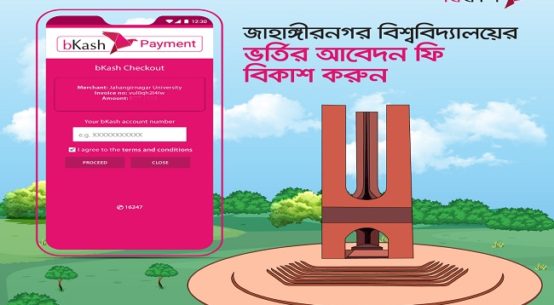“I want student politics to remain. If we don’t practice politics, then someone inferior will come and take that place. I think that student politics will bring students closer. I and other private university students studying on an open credit system don’t even know each other,” said Siam Ul Islam Amit from AIUB in a roundtable discussion at North South University (NSU).
The Center for Peace Studies (CPS) of the South Asian Institute of Policy and Governance (SIPG) at NSU hosted a pivotal roundtable discussion titled “গণ-অভ্যুত্থান ২০২৪: তরুণ প্রজন্মের প্রত্যাশায় আগামীর বাংলাদেশ” on Monday, August 19, 2024, at 11:00 AM. The event was live streamed via the CPS’s official Facebook page and brought together students from several prominent private universities who played a central role in the July 2024 mass uprising that led to the historic regime change in Bangladesh. During the discussion, students explored various aspects of national reformation and the future direction of the country. They emphasized the role of private university students in shaping the political landscape and the paradigm shift that has occurred due to their active participation. Afiya Jannat Ananna from BRAC University said, “Every university in the country represents Bangladesh,” showing strong determination to work for the country.”
The session was moderated by Dr Bulbul Siddiqi, Associate Professor at NSU. The event began with a solemn minute of silence in memory of the students who lost their lives during the protests. In his opening remarks, Dr Siddiqi acknowledged the significant contributions of private university students to the July uprising highlighting their unity and determination in bringing political change. He noted that the uprising represented a paradigm shift in the perception and involvement of private university students in the country’s political and social spheres.
Representatives from North South, BRAC, AIUB, IUB, and East West University discussed the unprecedented unity among private university students during the movement. They reflected on the engagement that began in solidarity with public university students and expanded into a nationwide effort for justice and reformation. The participants emphasized that the movement proved private university students could overcome barriers and actively contribute to national causes. The speakers shared their first-hand experiences, recounting the challenges faced during the protests, including confrontations with law enforcement agencies and the lack of support from certain university authorities. Despite these hurdles, the students remained steadfast in their commitment to the cause, driven by a shared sense of purpose and patriotism.
Students also emphasized the need for political reformation, stressing that student politics should be revived and restructured to ensure meaningful participation in mainstream politics. They also called for a comprehensive review and reform of the educational curriculum to better align it with the needs of the country. In this regard, Ayesha Akter, a student from AIUB, discussed the sense of working for the country with self-creativity and engagement with public dealings. Moreover, she added that the holistic system should not follow typical political trends that have been prevalent this far.
Students from IUB and East-West University shared how their families, despite the risks, encouraged them to participate in the protests, recognizing the importance of their actions for the nation’s future. They discussed the critical role of community support and the broader implications of the movement for Bangladesh’s development.
The speakers called for systemic changes across various sectors, including the independent judicial, law enforcement, property rights, and legal system reforms, to ensure justice and equity for all citizens.
The roundtable concluded with a summary by Dr Nova Ahmed, who highlighted the key takeaways from the discussion. Dr. Ahmed emphasized the need for continued vigilance and activism to safeguard the gains during the 2024 uprising. She called on the participants to remain committed to the ideals of justice, equity, and democracy and to work towards ensuring that Bangladesh never again falls under autocratic rule.
NSU faculties and students were present in the roundtable discussions.

